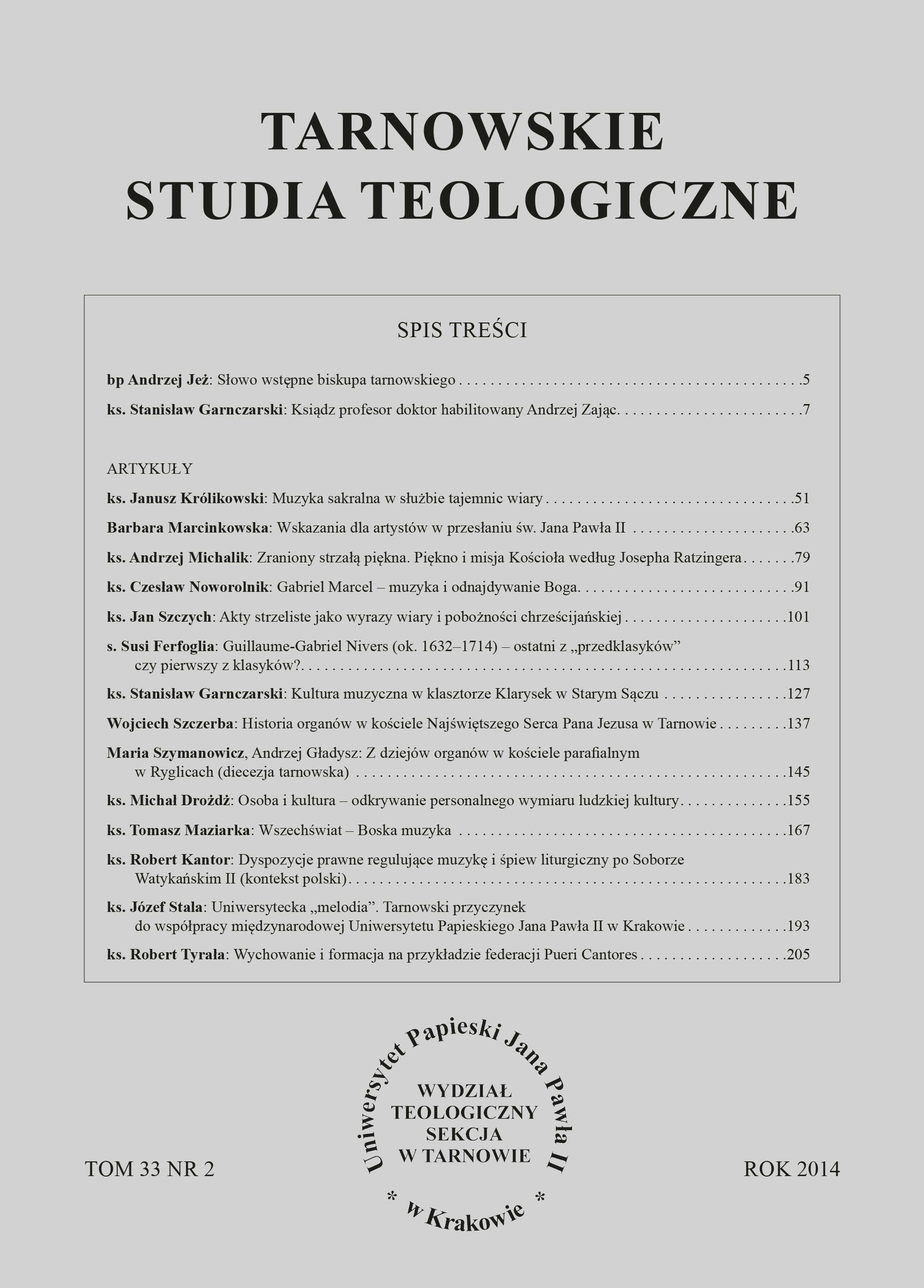The universe – the divine music
DOI:
https://doi.org/10.15633/tst.694Keywords:
philosophy of music, mathematicity of the music, cosmic fugue, God as the Great MusicianAbstract
The nature of music and the nature of the universe reveals a lot of common features. Similarity of both was perceived in mythical era; the world of music and the world of astronomy was devoted under patronage of the sisters – the divine Muses. The discovery of the mathematical nature of the musical intervals, which was made by Pythagoras ordered him to base the harmony of the universe on the numerical relations and to recognize that music accompanies the revolution of the heavenly spheres. Plato gave the „music of the spheres” geometric form, and in the Middle Ages, when the Christianity assimilated the idea of the world as a rational structure, harmonia mundi was a model for the composers as well as for ascetic struggles. Modern times and characteristic development of natural sciences, very clearly supported the argument that the world is mathematical. Metaphorical approach of the modern String Theory, which describes the evolution of the first moments of the universe, permits to assign to God the role of the Great Musician who „playing on the strings” – creates the universe.
Downloads
Published
Issue
Section
License
Authors who publish with this journal agree to the following terms:
- Authors retain the copyright and full publishing rights without restrictions, and grant the journal right of first publication with the work simultaneously licensed under a Creative Commons Attribution 4.0 International License that allows others to share the work with an acknowledgement of the work's authorship and initial publication in this journal.
- Authors are able to enter into separate, additional contractual arrangements for the non-exclusive distribution of the journal's published version of the work (e.g., post it to an institutional repository or publish it in a book), with an acknowledgement of its initial publication in this journal.
- Authors are permitted and encouraged to post their work online (e.g., in institutional repositories or on their website) prior to and during the submission process, as it can lead to productive exchanges, as well as earlier and greater citation of published work (See The Effect of Open Access).

